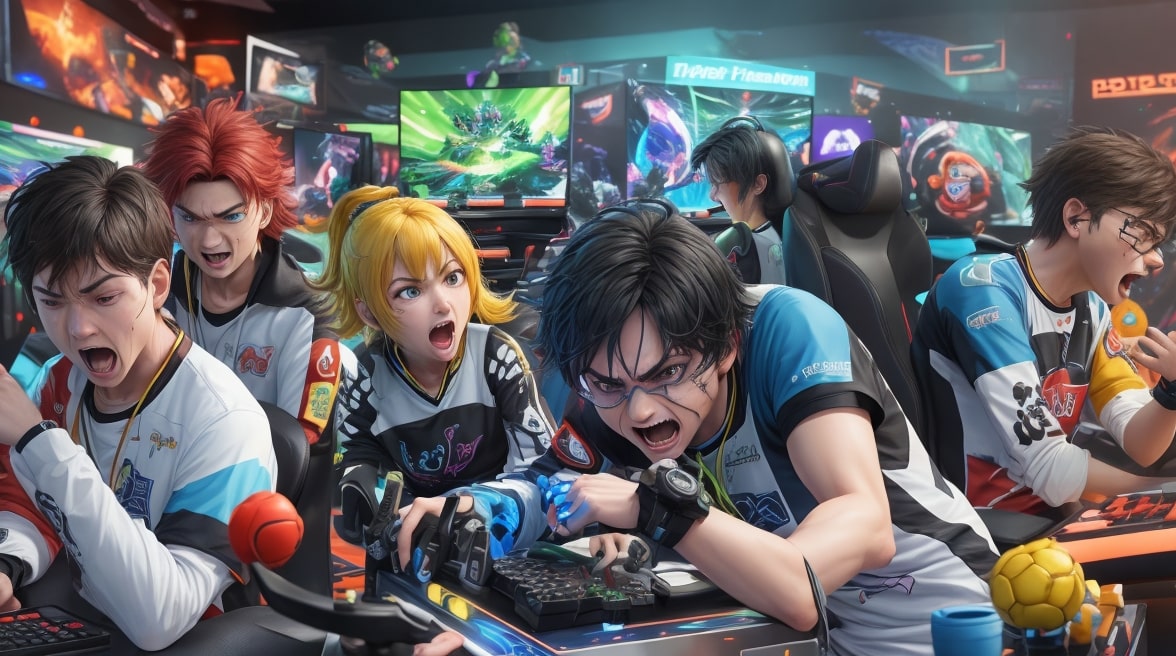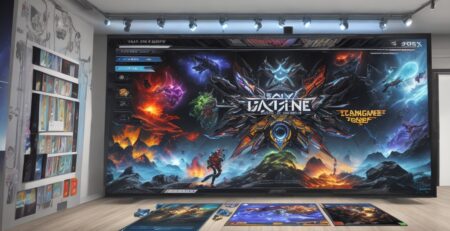The Emotions Involved In Competitive Video Games
Overview of Competitive Video Games:
Over the past ten years, competitive gaming, or esports, has become increasingly popular, drawing millions of participants and viewers worldwide. But why do people participate in such demanding and frequently stressful activities? Competitive gaming has a complex psychology, including motivation, thought processes, social dynamics, and affective reactions. This article examines these factors to help readers understand why players are drawn to and successful in competitive gaming.
The Allure of Online Gaming Competition
Motivation: Internal vs. External
Extrinsic and intrinsic elements are the two main categories into which motivation in competitive gaming may be divided. Intrinsic motivation is the inward fulfilment and joy from playing video games. Many players feel a condition of total immersion and concentration known as “flow,” which offers intense satisfaction. On the other hand, extrinsic motivation is driven by outside incentives like cash awards, accolades, and social standing. Both forms of motivation are essential for a player to remain engaged and committed.
The Excitement of Participation
One of the main draws for gamers is the thrill of competing against others. It might be thrilling to experience the rush of excitement that comes with high-stakes matches. This excitement is frequently contrasted with the feelings seen in conventional sports, where the tension of beating rivals and the suspense surrounding the result combine to provide an engaging experience.
Benefits and Difficulties of Cognitive
Developing Cognitive Abilities
A high degree of cognitive engagement is necessary for competitive gaming. Players must hone abilities, including rapid decision-making, spatial awareness, and strategic thinking. According to research, playing video games can boost specific cognitive capacities, which can improve one’s capacity for problem-solving and mental agility. These advantages apply to other facets of life as well as games.
Stress and Pressure’s Effects
Although playing competitive video games can improve cognitive abilities, there is much pressure and stress involved. Anxiety and burnout can result from the pressure to perform well, particularly in high-stakes competitions. One must know how to handle these stresses to keep one’s mental health intact. Long-term competitive gaming success requires mindfulness, stress reduction techniques, and a balanced lifestyle.
Social Dynamics and Interactions
Establishing Communities
Gaming competition is, by its very nature, social. Online multiplayer games foster communities where people can interact, cooperate, and compete. People who find it challenging to interact socially in other settings can significantly benefit from the sense of support and belonging that these communities offer. The close-knit relationship that develops inside gaming groups can enhance a player’s general well-being.
The Function of Group Dynamics
Comprehending and maximizing team dynamics is essential in team-based competitive games. Strong cooperation, trust, and communication are common characteristics of successful teams. Psychological concepts like role distinction and group cohesiveness significantly influence a team’s functioning. To succeed in the game and real life, players must learn how to resolve conflicts with others and cooperate to achieve shared objectives.
Regulating Emotional Reactions
The Rollercoaster of Emotions
Competitive video games evokes a variety of feelings, from the thrill of winning to the annoyance of loss. Controlling these strong emotional reactions can be difficult. Maintaining a healthy gaming experience requires knowing the triggers and developing emotional control techniques. Players can manage negative emotions using cognitive reappraisal, which involves rephrasing their ideas about a situation.
Handling toxicity
Regrettably, there are instances when gamers encounter unpleasant conduct and harassment from other players in competitive gaming contexts, which can turn toxic. This toxin may greatly affect a player’s mental health. To survive these situations, one must learn coping mechanisms and resilience. The work of community administrators and game creators also greatly aids positive and encouraging gaming cultures.
Personality Traits’ Significance
Achievement Orientation and Competitiveness
Competitive gamers are more likely to possess certain personality traits. One prevalent characteristic is competition, or the drive to perform better than others. Many gamers are also motivated by achievement, aiming for greatness and having high standards. If not balanced with self-care and sensible goal planning, these attributes can lead to success in competitive gaming and cause stress and burnout.
Both Extraversion and Introversion
People’s approaches to competitive gaming are also influenced by personality factors like extraversion and introversion. Extraverts may flourish in social situations and cooperative play, whereas introverts might enjoy the seclusion of alone practice and the strategic elements of games. By being aware of these characteristics, gamers may maximize their gaming experiences and discover their place in the industry.
The Prospects for Competitive Gaming Psychology
Research Developments
The number of studies on its psychological implications is growing alongside the competitive gaming industry. More research on gaming activity’s social, emotional, and cognitive aspects is in store for the future. Creating interventions and support networks to improve player performance and well-being can improve well-being through these observations.
Consequences for Mental Health
The increasing acknowledgement of the psychological effects of competitive gaming has consequences for those working in mental health. Counselors and therapists can gain by being aware of the special difficulties and possibilities that come with gaming. By applying this understanding to their work, professionals can assist those who are enthusiastic about gaming and help them navigate the psychological dynamics that go along with it.
In summary
Competitive video game psychology is intricate and multidimensional, involving motivation, thinking, social interactions, and affective states. Understanding these components can help explain why individuals are drawn to and successful in competitive gaming. Research and awareness raising will be essential as the field develops to help improve mental health and well-being. Understanding the psychological nuances of competitive gaming will help us create a more encouraging and enriching atmosphere for all participants.












Leave a Reply